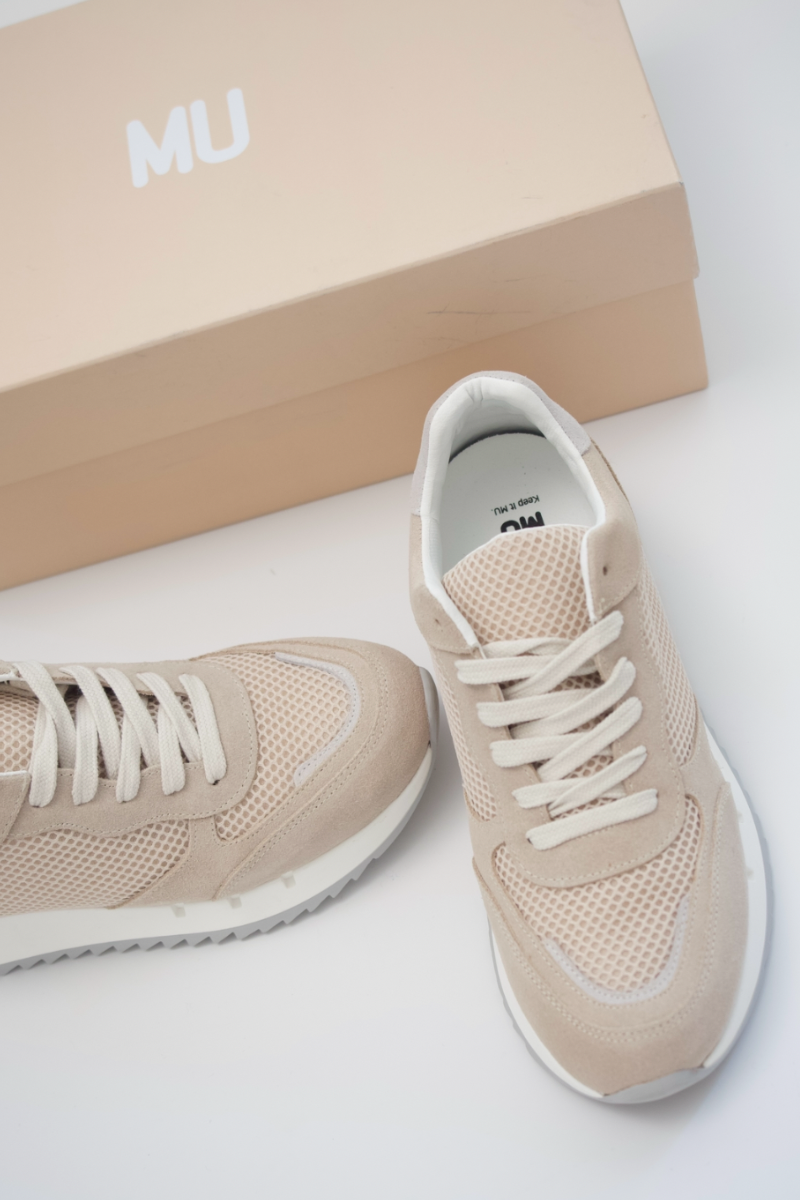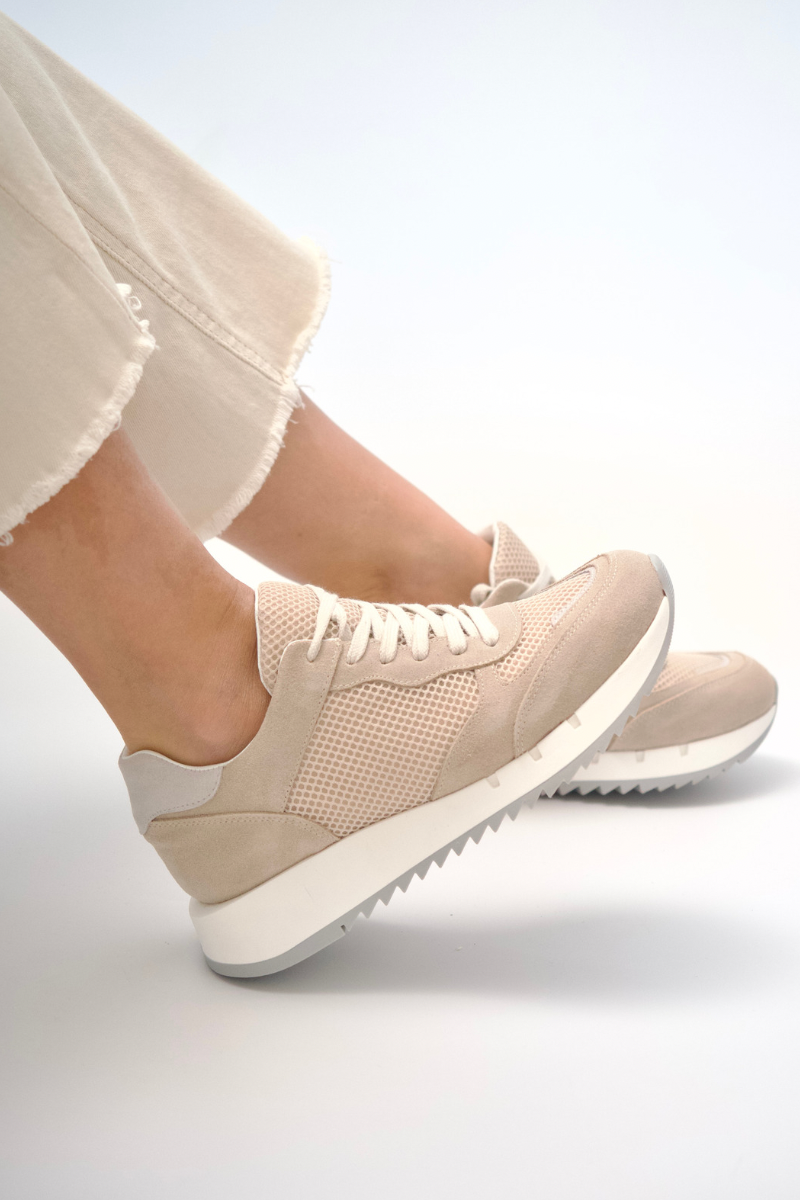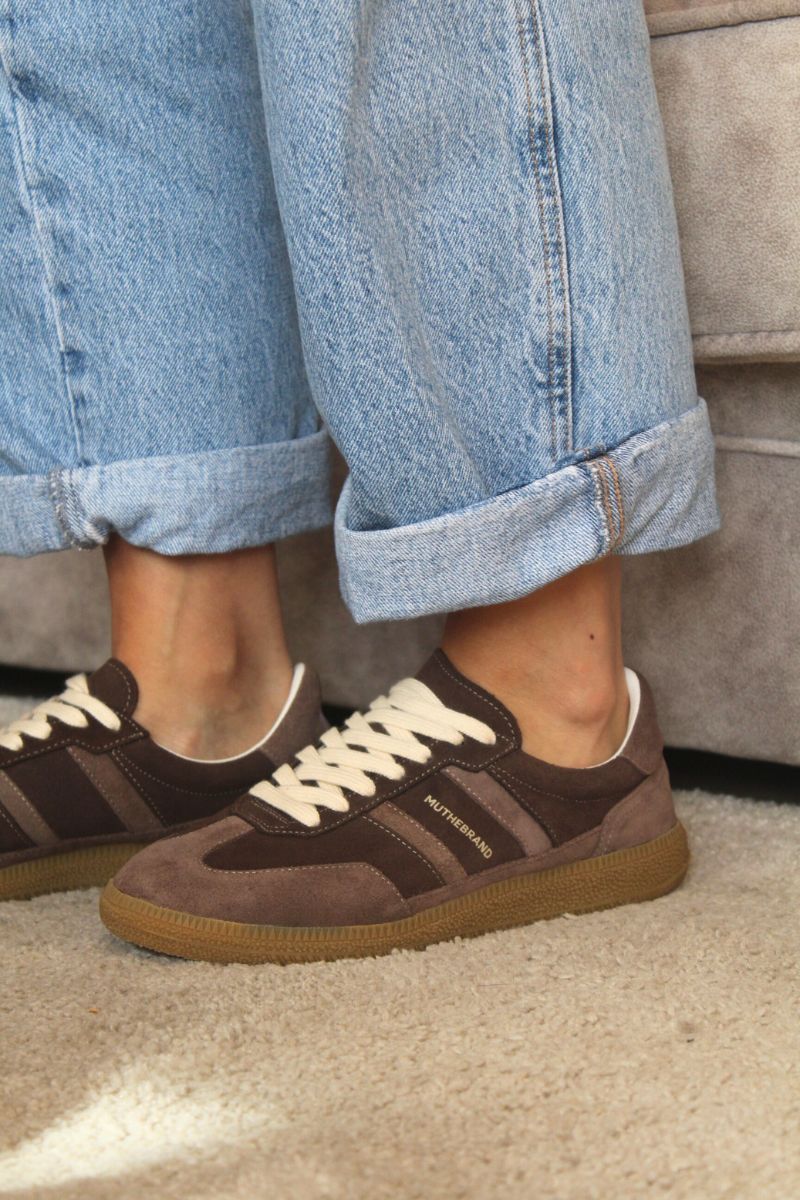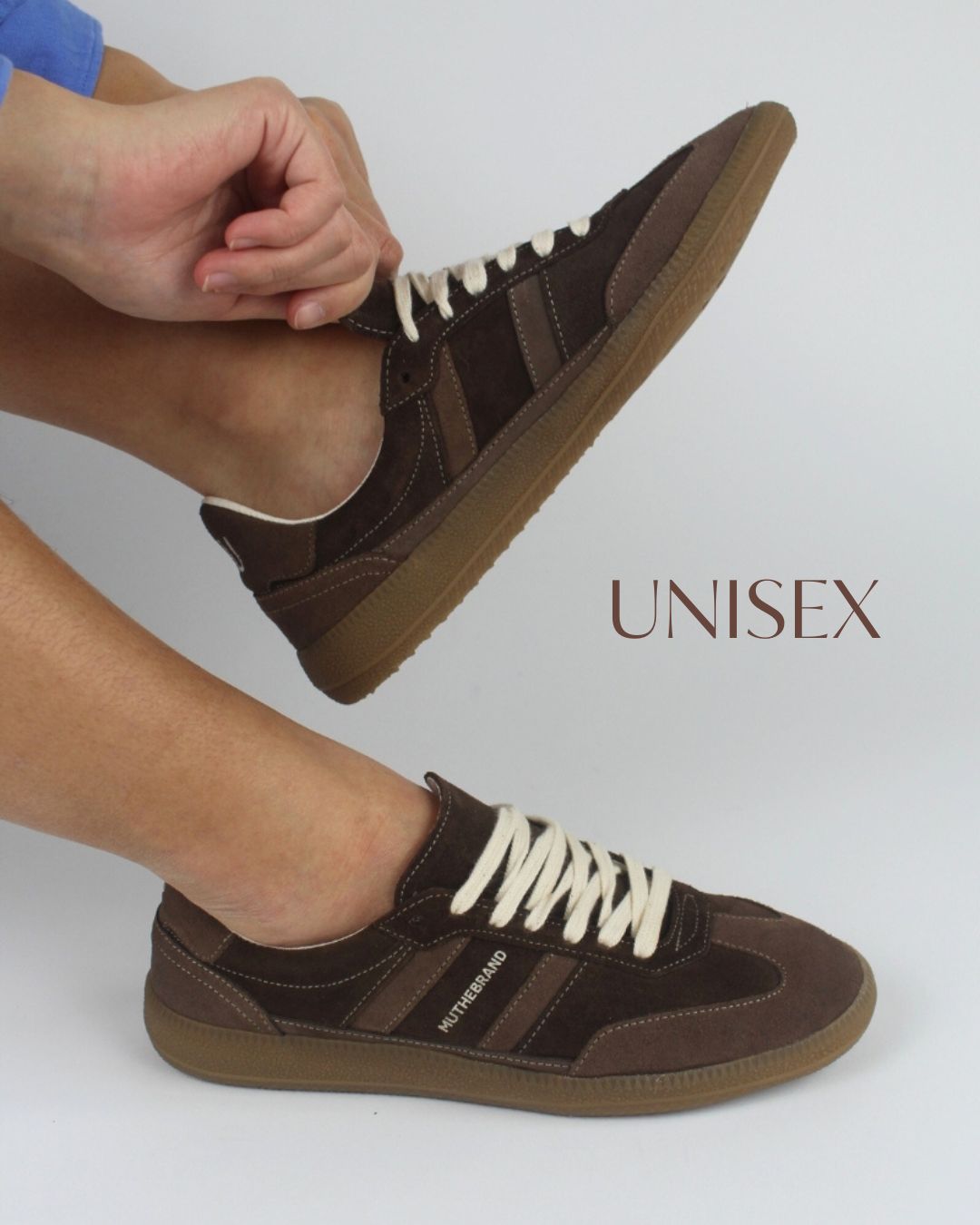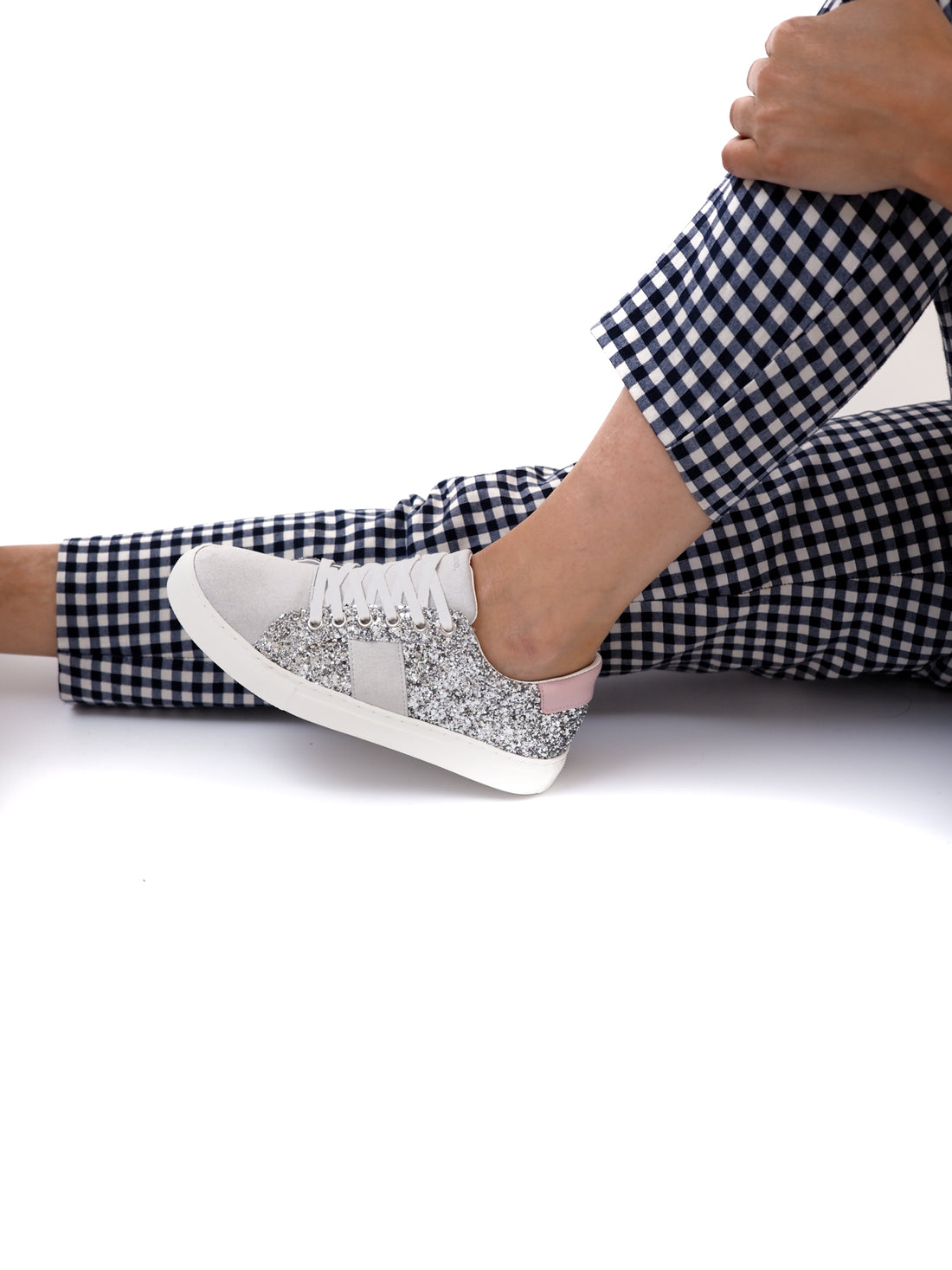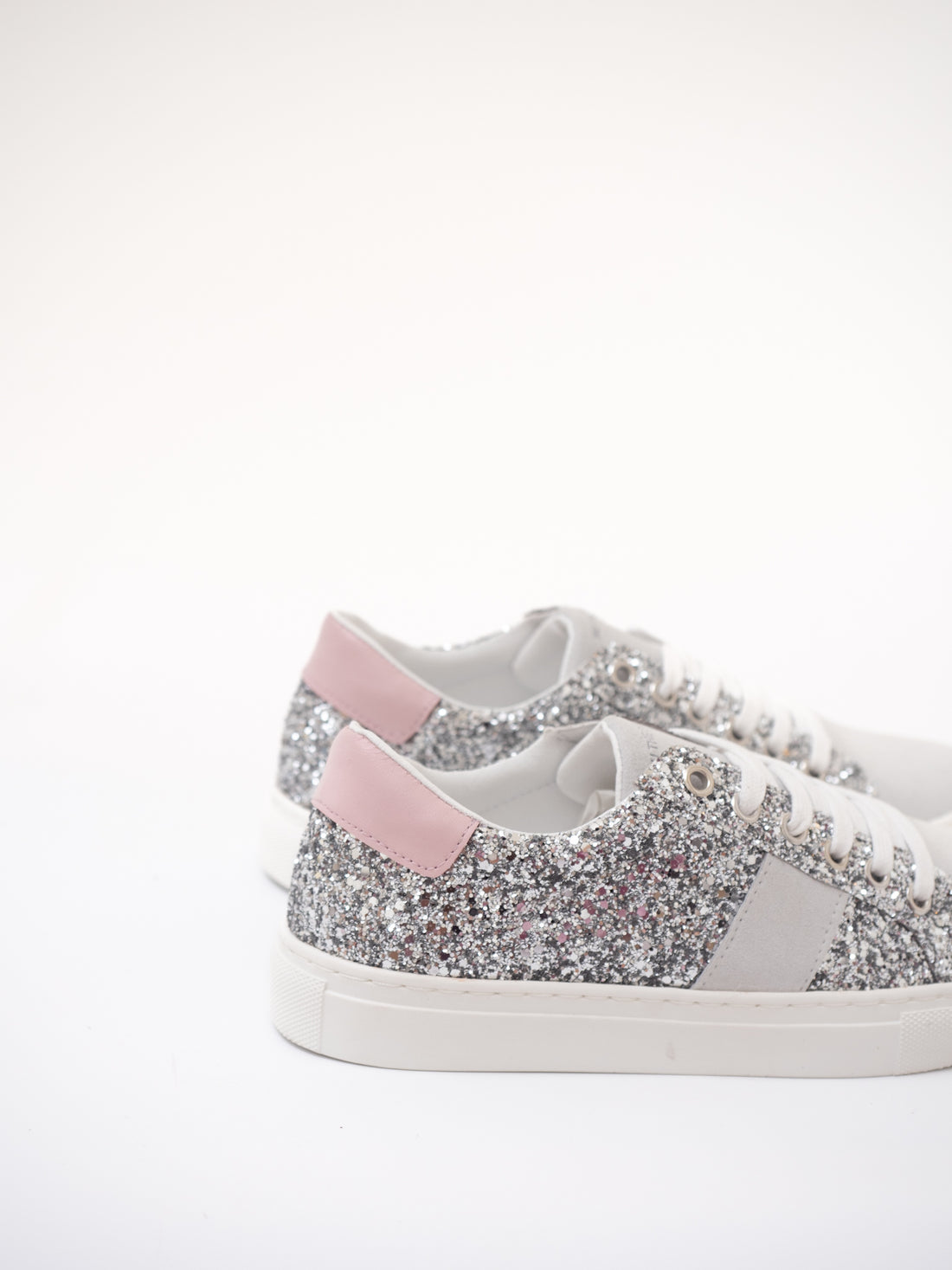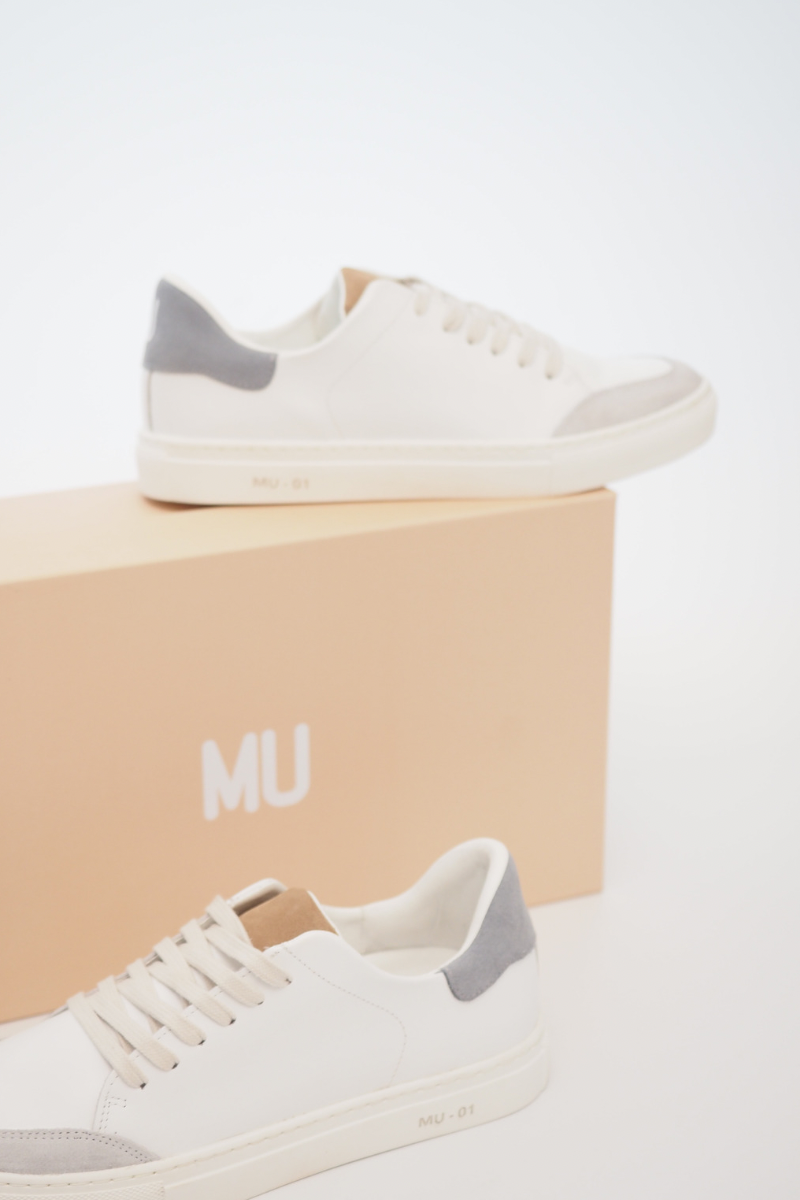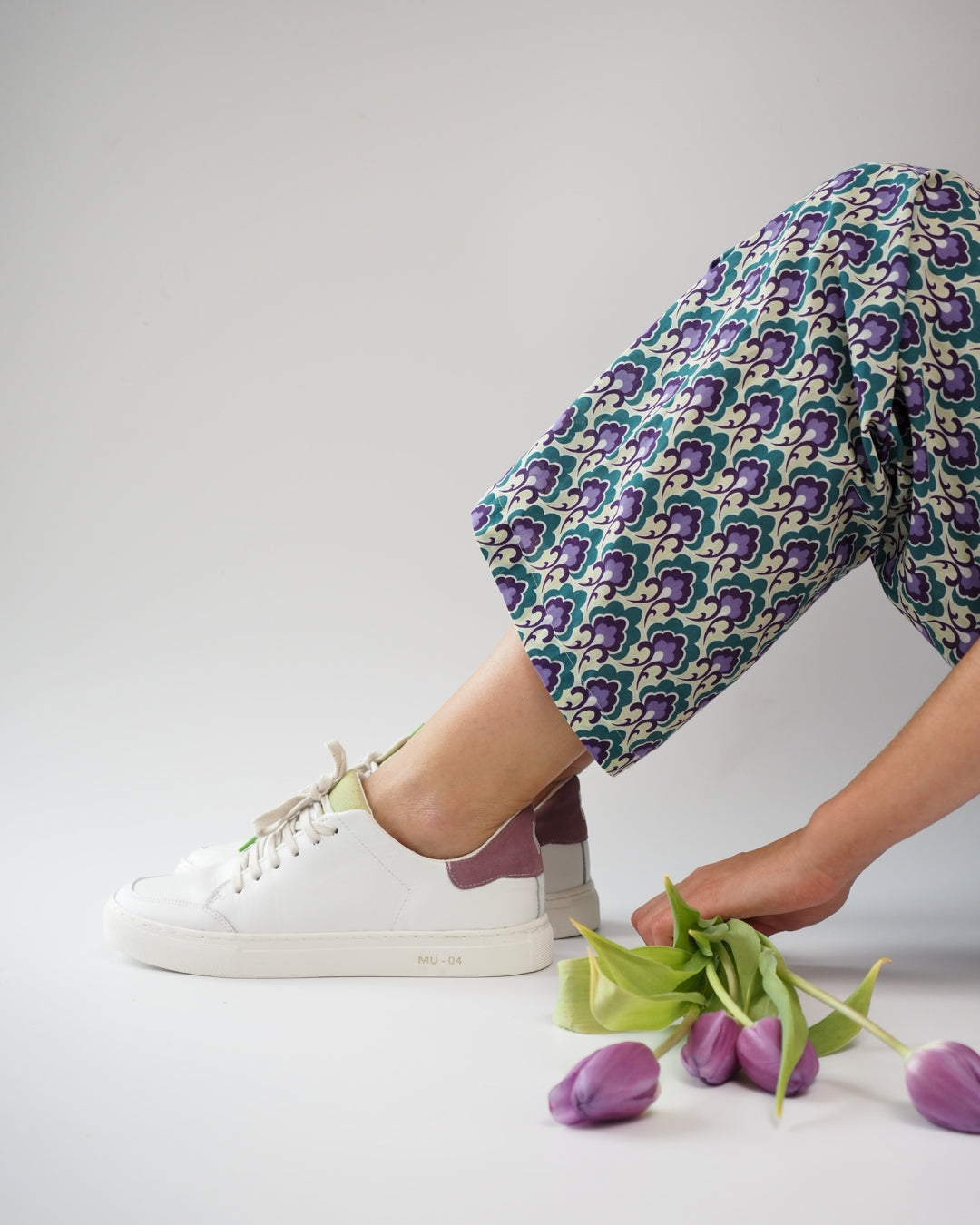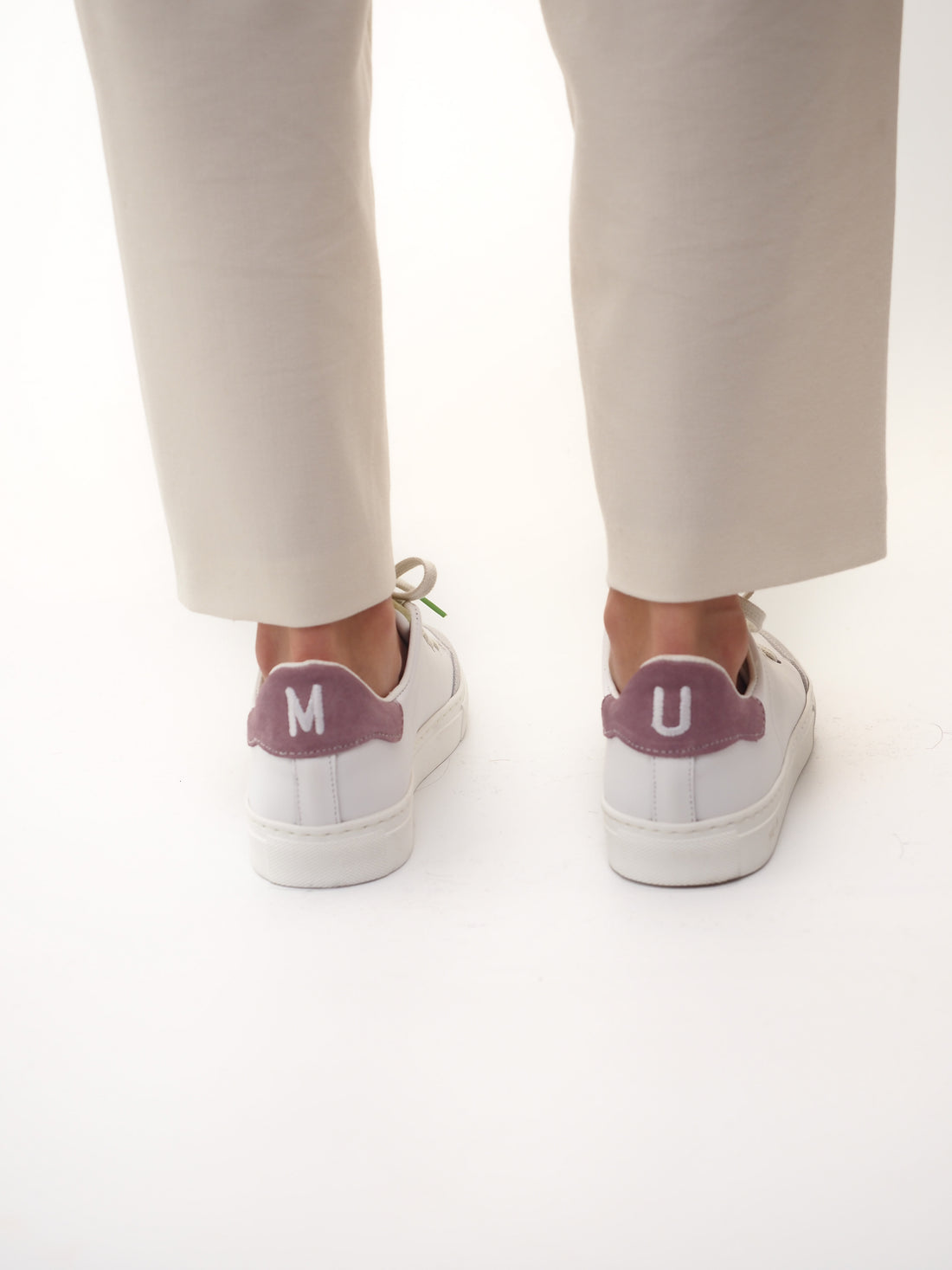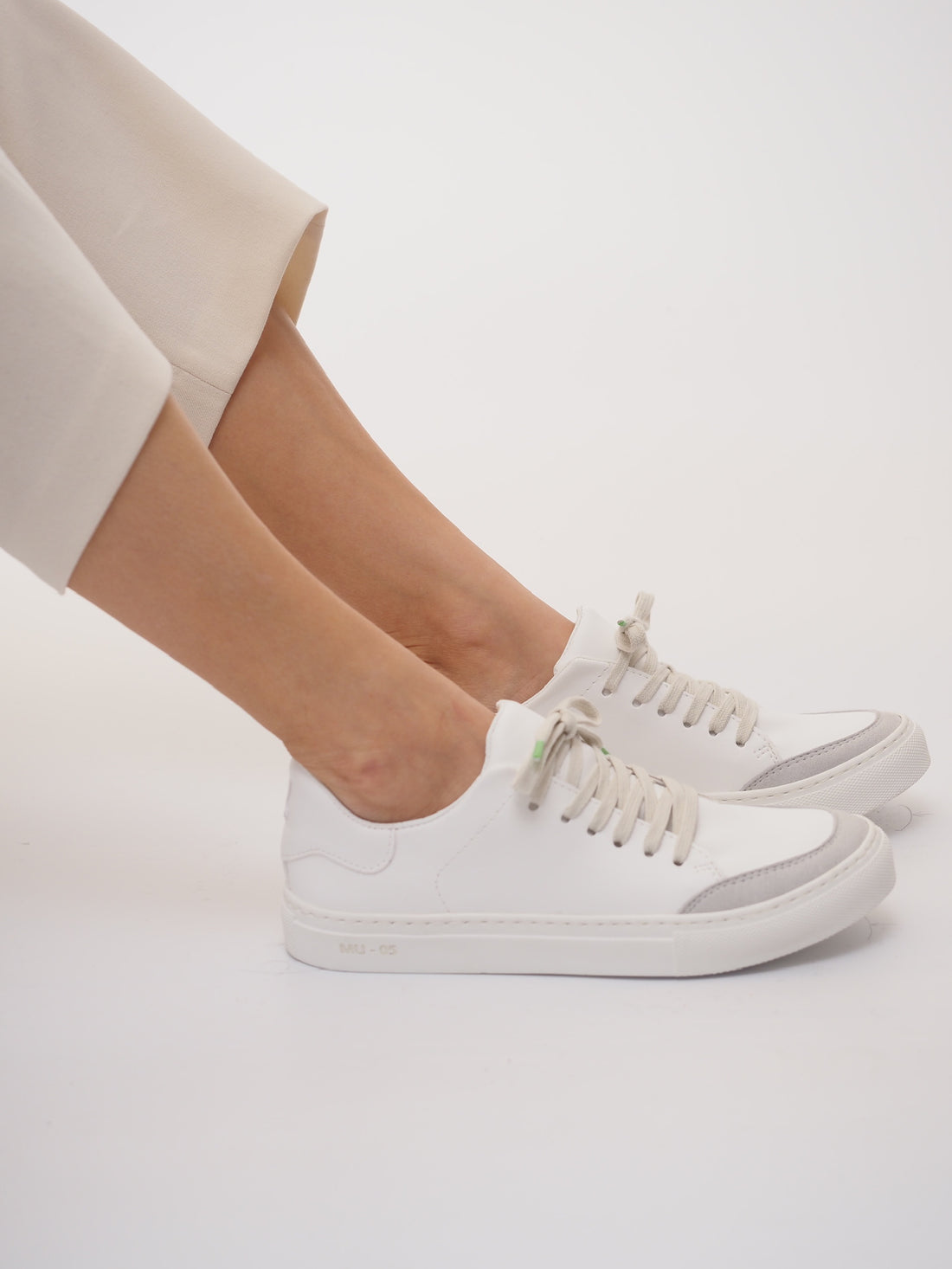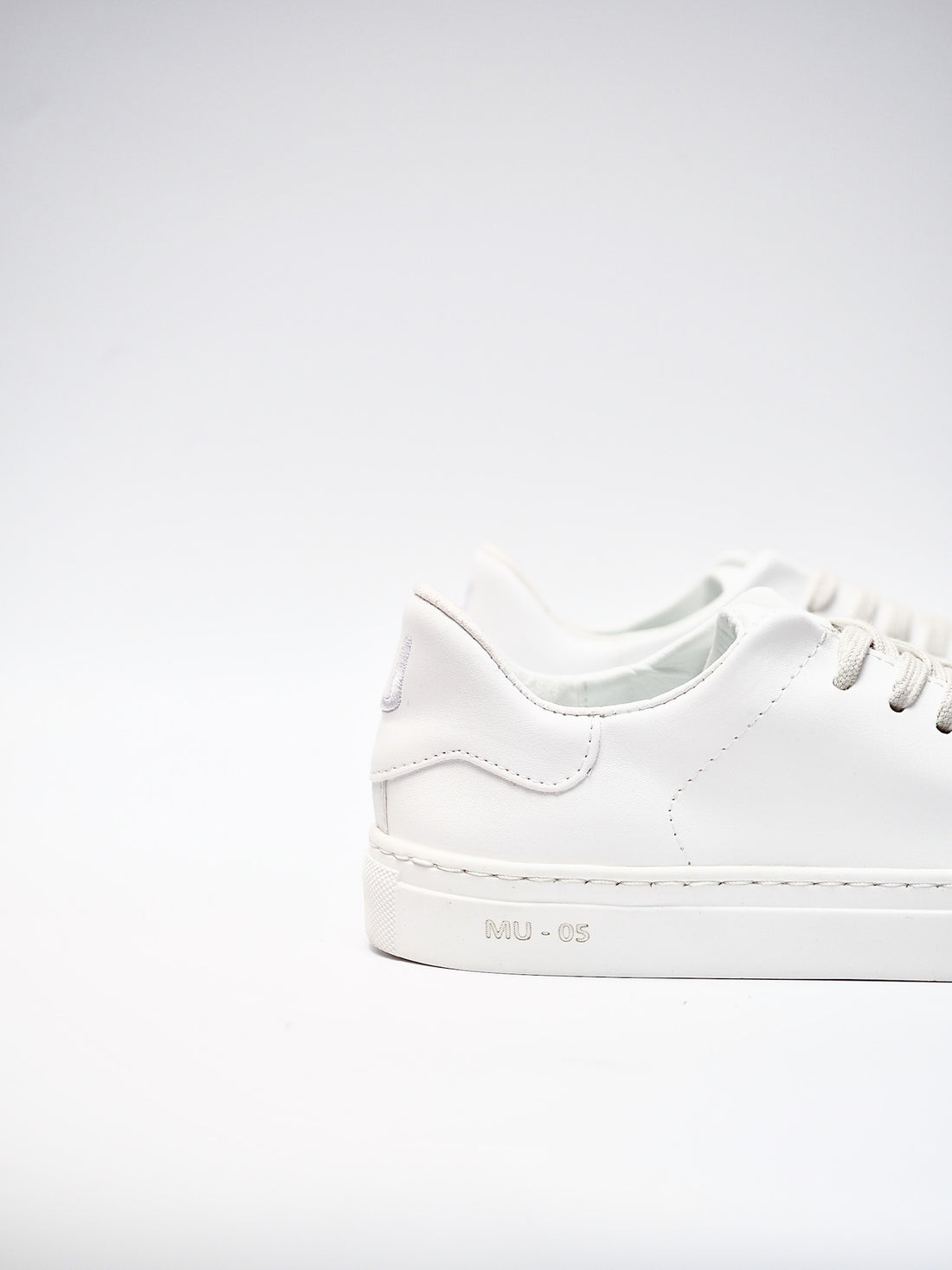At MU, we believe that every purchasing decision is also a form of expression. And when it comes to sneakers, the place where they're made isn't a minor detail: it speaks to the values behind the product, the quality of what you wear on your feet, and the impact you make when you choose.
Today we want to explain to you, with complete transparency, what really changes between sneakers made in Spain and those made in China.
1. Craftsmanship versus mass production
Spain:
In Spanish workshops, many sneakers are still made by hand or semi-manually. Every detail is carefully curated, from the cut of the leather to the stitching, in small batches that allow for quality control from start to finish. Production is slower, but also more conscientious.
China:
Most factories operate under a mass industrial production model. The goal is efficiency: making more, in less time, and at the lowest possible cost. This allows for low prices, but often at the expense of precision, durability, and production ethics.
2. Materials: quality versus cost
Spain:
We work with local or European materials from certified suppliers, prioritizing natural leathers, recycled fabrics, and sustainable components. All with traceability. The result: a more durable and comfortable product.
China:
Although there are high-end factories, many opt for cheaper synthetic materials, which reduce the final cost but also the quality and lifespan of the footwear.
3. Working conditions
Spain:
European regulations protect workers' rights. Those who make your shoes do so in decent conditions, with regulated hours and fair wages.
China:
Although the situation has improved in some areas, inequalities and a lack of transparency remain. In many cases, it's unknown who makes the shoes or under what conditions.
4. Environmental impact
Spain:
Producing locally reduces the carbon footprint by minimizing transportation. Furthermore, workshops often implement waste reduction and responsible energy consumption policies.
China:
Products travel thousands of kilometers by ship or plane to reach Europe, significantly increasing their environmental impact. Added to this is the frequent use of non-recyclable materials and disposable packaging.
5. Price vs. value
Pay less or pay wisely?
Sneakers made in China may cost less, yes, but the real price (social, ethical, environmental) is often higher.
Sneakers made in Spain cost more because those who make them are paid, good materials are chosen, and they are produced responsibly. It's an investment in quality... and in values.
6. What's behind what you're wearing?
When you choose MU sneakers, you're not just buying a timeless design. You're opting for the know-how of generations, local jobs, and a more conscious way of consuming.
The MUs are handmade with honesty, love and respect in Elche (Spain) in a third-generation workshop
"It's not about how many pairs you have, but how much story there is in each one."
MU — Timeless elegance, crafted with a Spanish soul.






